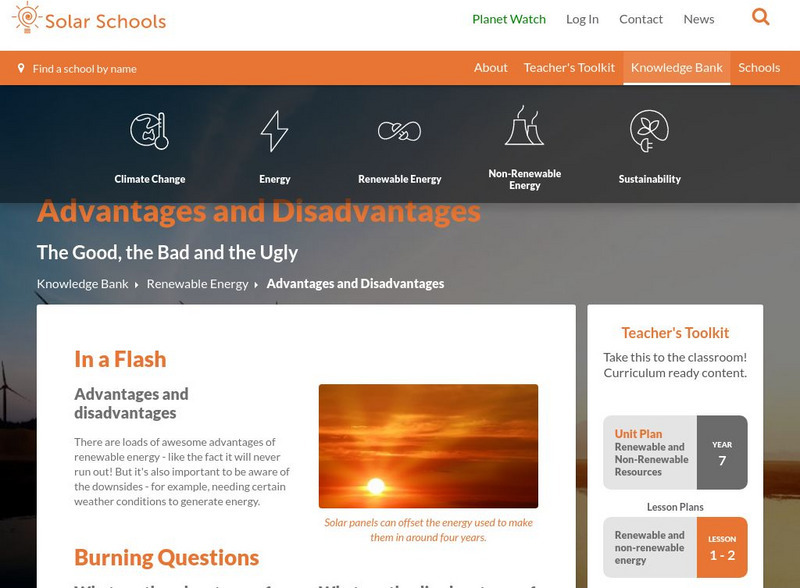Hi, what do you want to do?
CK-12 Foundation
Ck 12: Earth Science: Cleaning Up Groundwater Study Guide
This comprehensive study guide covers the main terms and concepts needed for an earth science unit on cleaning up groundwater. Review questions are included at the bottom of the study guide.
Science Struck
Science Struck: Interesting Facts About Neon
Presents some facts about the element Neon, its chemical properties, some ways it is used by humans, and its effects on the environment and on humans.
Other
Solar Schools: The Advantages and Disadvantages of Renewable Energy
One major advantage with the use of renewable energy is that as it is renewable it is therefore sustainable and so will never run out. Renewable energy facilities generally require less maintenance than traditional generators. Their fuel...






